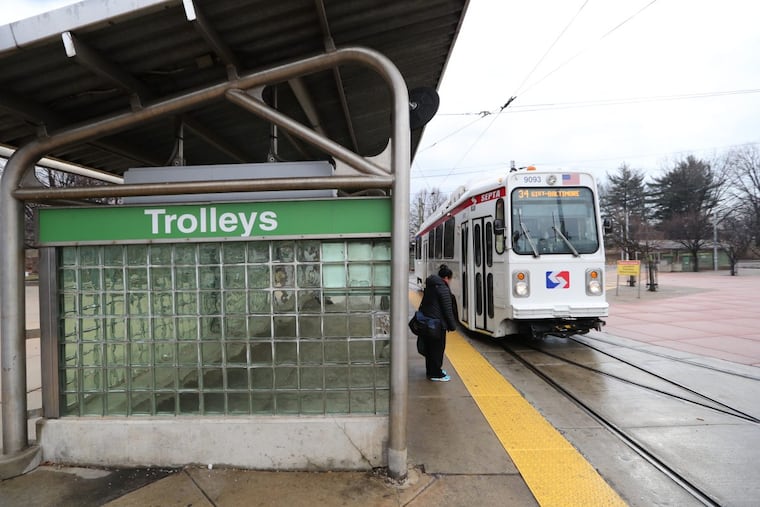SEPTA will shut down trolley tunnel for maintenance starting Friday night
“For the time being, it’s hopefully a minor inconvenience for people and then helps us, beyond the blitz, maintain efficient service,” said SEPTA spokesperson Andrew Busch.

SEPTA’s “Trolley Blitz,” halting service through its trolley tunnel spanning 13th to 40th Streets, will start this week and last for 10 days.
It’s the eighth consecutive summer for the event, planned to give the authority a chance to tackle work in the tunnel, which normally handles about 65,000 riders daily. The “blitz” is slated to begin at 10 p.m. Friday and continue through 5 a.m. Monday, July 20.
The shutdown lets SEPTA handle predictable maintenance work, track construction, upgrades, and improvements at once, avoiding major shutdowns during other parts of the year, SEPTA spokesperson Andrew Busch said. The cost of this year’s blitz, counting labor and materials, is about $1 million.
“For the time being, it’s hopefully a minor inconvenience for people and then helps us, beyond the blitz, maintain efficient service,” he said.
Routes 10, 11, 13, 34, and 36 will divert to 40th and Market Streets during the blitz, where riders can transfer to the Market-Frankford Line. Personnel will be stationed to help passengers with any questions. Signage will also be posted.
The blitzes were the brainchild of former general manager Jeff Knueppel when he served as deputy general manager. SEPTA general manager Leslie Richards, who took over the role in January, is continuing the effort because “it’s worked,” Busch said.
SEPTA plans the blitz in summer months when it has fewer riders, with this year certainly no exception. The tunnel now sees fewer than 23,000 riders on an average weekday because of the coronavirus, Busch said.
The work was slated for August, but the authority moved up the timeline in response to the pandemic. SEPTA also moved up its Southwest Connection Improvement Project along Regional Rail to take advantage of lower ridership.
“We wanted to get it done as soon as possible,” Busch said. “So even though August is traditionally a lower ridership month, there’s so much different about this year compared to other years.”
SEPTA is beginning a slow recovery from the nearly nonexistent ridership earlier in the COVID-19 pandemic. Most transit service resumed in May, while Regional Rail boosted frequency last month.
The authority requires passengers to wear face coverings to protect against the coronavirus. SEPTA is continuing enhanced cleaning efforts and blocked off seats to promote social distancing.
SEPTA implemented parts of its latest fare changes earlier this month, including free fare for children under 12 and a longer window of time for riders to take advantage of a free transfer.